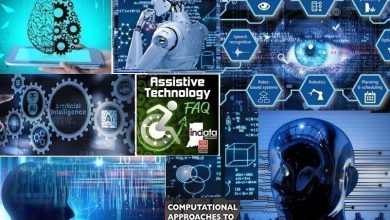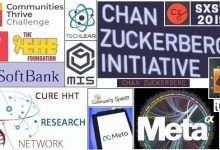
Today we talk with Samuel Fosso Wamba about the facts about AI, its applications in almost every part of our life, how it can be useful during COVID-19 situations and everything you need to know about AI explained.
Prof Samuel Fosso Wamba is a Full Professor at Toulouse Business School. He earned his Ph.D. in industrial engineering at the Polytechnic School of Montreal, Canada. His current research focuses on the business value of IT, inter-organizational systems adoption and use, supply chain management, electronic commerce, blockchain, artificial intelligence in business, social media, business analytics, big data, and open data. He has published papers in top journals including Academy of Management Journal, European Journal of Information Systems, Journal of Cleaner Production, Information Systems Frontiers, International Journal of Production Economics, International Journal of Information Management, International Journal of Logistics Management, International Journal of Production Research, Journal of Business Research, Technology Forecasting and Social Change, Production Planning & Control, and Business Process Management Journal. Prof Fosso Wamba is organizing special issues on IT-related topics for leading international journals. He won the best paper award of The Academy of Management Journal in 2017 and the papers of the year 2017 of The Electronic Markets: The International Journal on Networked Business. He is an Associate Editor of the International Journal of Logistics Management information and The Electronic Markets: The International Journal on Networked Business. He serves on the editorial board of five international journals. Prof Fosso Wamba is CompTIA RFID+ Certified Professional, Academic Co-Founder of RFID Academia. He is the Coordinator of the newly created Artificial Intelligence & Business Analytics Cluster of Toulouse Business School, France.
Facts on AI
What are the most common misconceptions about Artificial Intelligence?
- AI and ML mean the same thing. Definitely not! AI embodies the field of study, the concept, the ability, or a system that focuses on getting machines to perceive, comprehend, act, and learn in a way like the way human beings do. However, ML is essentially a branch of AI that enables computers to self-learn from data using advanced algorithms and statistical computational techniques by understanding patterns in large data sets, making predictions as they encounter new data, and adapting independently. It forms the basis of most contemporary AI systems. However, these algorithms, like any other, can be used in non-AI systems.
- AI will replace humans. AI systems will always need humans. Although AI is based on the understanding of the functioning of the human brain, it doesn’t work like the human brain and hence cannot replace humans. AI cannot understand the dynamics of social interactions and hormonal reactions that make people act and learn the way they do. Thus, human beings will remain indispensable to ensure things are done right.
- AI will take away our jobs. This is not entirely true. AI will mostly replace repetitive jobs that do not require complex thinking. However, they will augment human capabilities while providing advanced support in decision-making. Furthermore, it will create many new jobs in all fields that will be eager to make the most of AI to optimize their performances.
- AI is dangerous. AI will always have a negative side as long as the Internet will also serve hackers. It depends on how it is programmed and how it is used.
What are the common uses and applications of AI?
AI is used and can apply in almost every aspect of our everyday lives. These are a few common uses and applications:
- Health care: patient diagnosis and prescription, disease prediction, support complex surgeries.
- Education: personalized learning experiences.
- Internet services & retailing: personalized shopping experiences and customer services.
- Industry services & manufacturing: predictive and preventive maintenance.
- Financial services: fraud detection and management, credit analytics, AI-advisors

What are the trends and challenges facing AI and automation?
The main trend in AI and automation today is the use of conversational AI. We can all notice the rising use of voice-based digital assistants by organizations to provide large-scale automated and personalized experiences. The most popular ones among consumers are Alexa, Google Assistant, and Siri from Amazon, Google, and Apple companies, respectively.
However, AI faces several key challenges, the most prominent of which include (i) the company’s cultures and organizational structures, (ii) expectation management, (iii) data issues (bad quality, unlabeled, disorganized data, and unavailability of data), (iv) the lack of capabilities (skills and infrastructure), (v) risk management, and (vi) ethical issues.
Other trends are social distancing monitoring during epidemic outbreaks, design of interfaces to support cooperation between humans and machines, trust in AI, and cybersecurity.
Do you think replacing a lot of jobs with AI will turn out negative for the beneficiaries of such jobs? What should they do instead?
One of the greatest strengths of human beings remains their ability to acquire new skills – especially thinking skills. Critical thinking and creativity will always lead to new opportunities for humans. While AI might replace some jobs, the people concerned should learn new jobs and skills that add value to mitigate systematic job automation. This also includes learning how to design and develop these systems. In addition, human expertise will always be required to understand and achieve optimal task automation, output monitoring and verification, and systems maintenance. Therefore, AI will replace and extinguish some jobs while creating many others. This is not a new phenomenon. It happens with any new technological breakthrough that always leads to the destruction of some existing skills/competencies/jobs/industries and the creation of new ones.
How AI can be helpful in the situation of COVID-19 and other world crises?
AI can play a significant role in managing pandemics, including the Covid-19, especially for proper screening, tracking and identifying contamination patterns, and predicting the evolution of the pandemic. As we speak, the Organization for Economic Co-operation and Development (OECD) is using AI to inform in real-time about the COVID-19 developments in the world (https://oecd.ai/covid). A recent study also shows that AI is currently used for the development of drugs and vaccines and the reduction of workload of healthcare workers. Moreover, several countries like China and France have proposed AI-based solutions that can help predict highly infected areas and identify people who may have been in contact with others carrying the virus. Also, machine learning algorithms could be used to assess the COVID-19 infection risks, accelerate the quest for new molecules to cure the Covid-19, and predict the next pandemic. We can also imagine a situation where robots could temporarily replace the labor force in some critical activities (e.g., retailing shops, urban transports) due to lockdowns. Furthermore, the AI can dynamically allocate the distribution of the resources according to the evolution of the crisis.
Acknowledgment: I extend my gratitude to Maciel Manoel de Queiróz and Ransome Bawack for their inputs.











